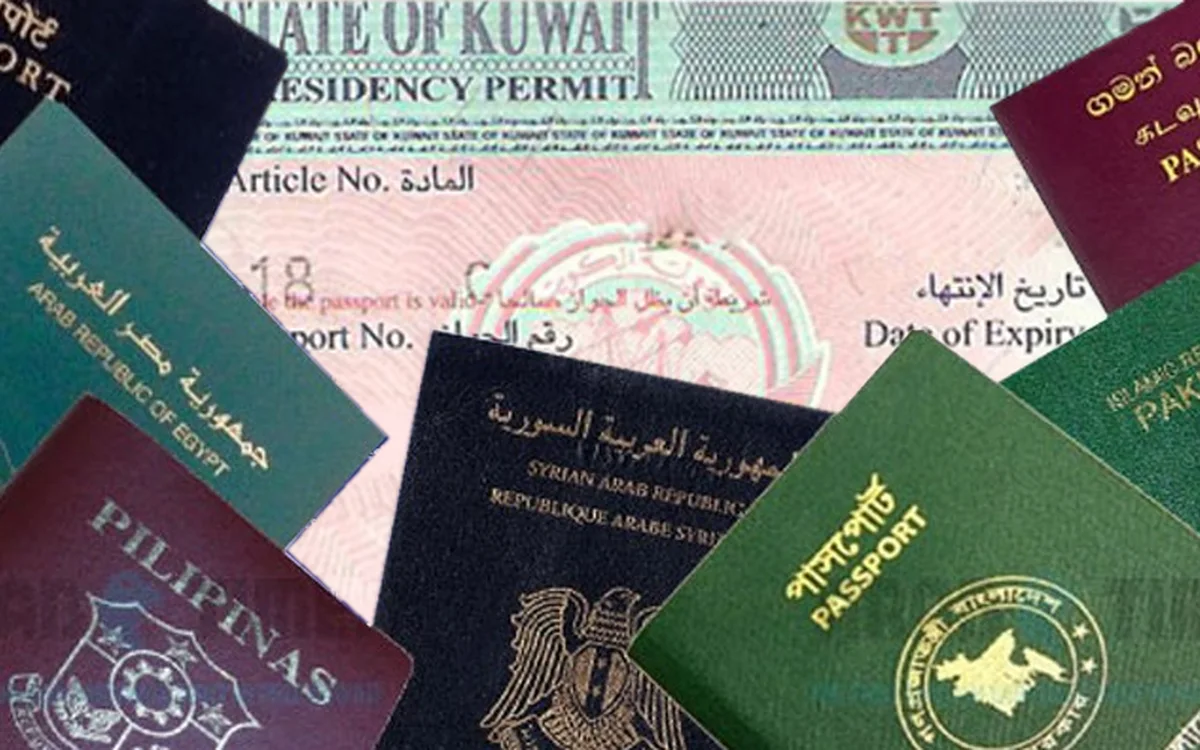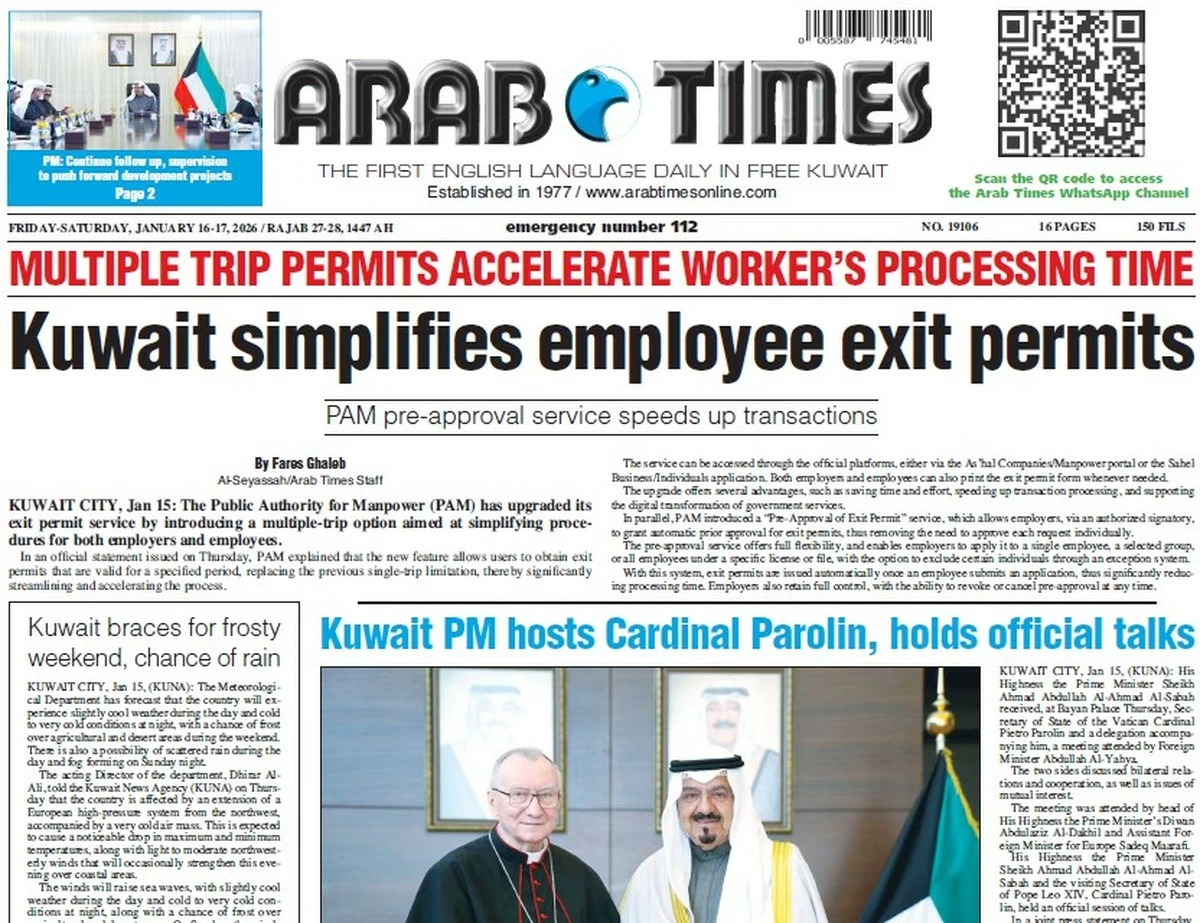26/08/2025
26/08/2025

The Article 18 visa, also known as the private-sector work visa, is one of Kuwait’s most widely used residency permits for expatriates employed in commercial sectors. Issued under private company sponsorship, it allows foreign workers to live and work legally in industries such as construction, contracting, retail, hospitality, logistics, and manufacturing.
To obtain this visa, companies must hold a valid commercial license and an approved quota from the Ministry of Social Affairs and Labor. The quota system ensures compliance with labor laws and maintains a balance between national and expatriate workers. Licensed manpower and contracting firms also operate under this category to recruit foreign staff.
A defining feature of Article 18 is the sponsorship system, which ties employees to their sponsoring employer. Transfers to other companies require official approval, and violations are treated as breaches of residency and labor regulations.
For expatriates, this visa remains a key entry point into Kuwait’s workforce, while for employers, it provides a regulated means to meet labor needs across diverse sectors.
Quick overview from Issuing of Article 18 visa to the collection of Civil IDEmployer obtains the work permit/entry visa → employee arrives → local medical tests & security checks → employer files the residency application with the Ministry of Interior (MOI) → MOI issues the residence stamp in the passport → register with PACI and pay Civil ID fees → collect Civil ID
Step-by-step
1) Before arrival — the employer applies for the work permit/entry visa
Who: employer (sponsor).
Employer applies to the Ministry of Social Affairs & Labour (MOSAL) / relevant e-services and arranges the MOI/embassy visa stamping. The company must provide job details, a passport copy, and required company documents.
2) Embassy stage (if visa is stamped abroad)
Who: employee (with employer support).
Submit any requested papers to the Kuwaiti embassy/consulate (passport, photos, attested certificates, police clearance for some nationalities, pre-departure medical if required by that embassy). (Requirements vary by country.)
3) Arrival & local medical exam (mandatory)
Who: employee (usually arranged/paid by employer).
Report to an MOH-approved medical centre for the residency medical exam. Tests typically include blood tests (HIV, Hepatitis B/C, syphilis, malaria/filaria, where applicable) and a chest X-ray for TB; Kuwait has tightened screening requirements recently, so expect thorough testing. You must obtain a disease-free / medical certificate.
4) Security check & fingerprinting (biometrics)
Who: employee (employer arranges the request/appointment).
The sponsor applies for security clearance; the new resident must complete biometric fingerprinting at an MOI biometric centre (appointment via the Meta portal / Sahel app). Biometric registration is mandatory for residents and linked to many government services.
5) Employer files the final residence permit application with MOI
Who: employer (sponsor).
Documents normally submitted: approved work permit, employee passport (original + copies), medical/disease-free certificate, health-insurance certificate, passport photos, sponsor’s signature authorization, police record if required, entrance/visa document, etc. Once approved, MOI will stamp the passport with the residence permit (the “residency stamp”). (This is the official residency endorsement.)
Timing note: MOI / immigration processing steps vary, but the final residence application is usually completed within the statutory timeframes required after arrival (employers generally file these promptly).
6) PACI (Civil ID) — first-time registration and payment
Who: employee or sponsor (often sponsor does it).
After MOI issues the residency stamp, the data is transferred to the Public Authority for Civil Information (PACI). You must register for first-time Civil ID (Article 18 registration) — usually within one month of obtaining the residency stamp (late registration incurs a fine). PACI will require a passport, a residency stamp, 2 photos, a blood-group certificate, a sponsor’s Civil ID copy, lease/address proof, and payment.
Fees: smart-card (Civil ID) acquisition fee KD 5 and envelope KD 0.250 (other service fees may apply). PACI often sends an SMS with a payment link when the card is ready to be paid/issued, or you can check from the PACI website
7) Wait for the Civil ID to be produced and collect it
Who: PACI/sponsor/employee.
Typical processing after PACI payment: roughly a few working days to 1–2 weeks (many people report 5–14 working days, but times vary by workload and correctness of documents). You can track the status on PACI e-services or by the PACI hotline. The card can be collected in person or via delivery (if offered).
Typical timeline (approximate)
- Employer work-permit & visa stamping (abroad): 2–6+ weeks (depends on embassy and approvals).
- After arrival: medical + biometrics + MOI filing: a few days to 2–3 weeks (depending on appointment availability and clearances)
- PACI Civil ID issuance after payment: 5–14 working days.
When you can apply for release (transfer of sponsorship)
When can you apply for release (transfer) from your company?
Under the Kuwait Labour Law (Law No. 6 of 2010) and the Ministry of Interior regulations, if you are employed on a private-sector Article 18 visa:
- You must generally complete 3 years of service with your first sponsor before you can transfer to another company without the employer’s consent.
- If your contract is fixed-term, you are usually expected to complete the contract duration before requesting a transfer.
- If your contract is open-ended, you can request a a transfer after three years, provided you give proper notice.
- Before three years: A transfer is possible only if your employer agrees (gives you a “release”) you have to pay fees which is generally KD 350.
- Special cases: If the employer violates labor law (e.g., non-payment of wages for three months or more, mistreatment, contract breach), you can file a complaint with the Public Authority for Manpower (PAM). In such cases, PAM can approve your transfer even without employer consent.
Employee rights under Kuwaiti labor law.
Rights of an employee under Article 18 visa (private-sector law)
Employees are covered by the Kuwait Labour Law (Law No. 6 of 2010). Major rights include:
Employees are covered by the Kuwait Labour Law (Law No. 6 of 2010). Major rights include:
- Working hours: Max 8 hours per day / 48 hours per week, with overtime pay if exceeded.
- Weekly rest: Minimum 1 paid day off per week (usually Friday).
- Annual leave: At least 30 days of paid leave per year (after completing 9 months of service).
- Public holidays: Paid leave on official holidays (Eid, National Day, etc.).
- Sick leave: Up to 15 days full pay, followed by reduced pay as per law.
- End-of-service indemnity:
- For monthly-paid staff: 15 days’ wage per year for the first 5 years, then 1 month’s wage per year thereafter, capped at 18 months’ pay.
- Release / transfer rights: As noted, you may transfer after 3 years, or earlier if the employer agrees or commits violations.
- Passport rights: Employer cannot legally withhold your passport.
- Wage protection: Salaries must be paid through the Wage Protection System (WPS) and on time. Delays beyond 3 months allow you to file a complaint.
- Grievance mechanism: You can file complaints at the Public Authority for Manpower or the Ministry of Interior if your rights are violated.
For more legal queries, visit our legal section. For new queries, email us at [email protected]


